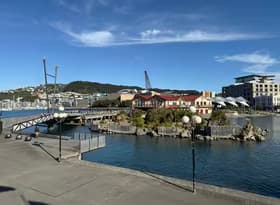A growing gulf between employers and job seekers
Our labour market is not working as well as it used to. The match between the type of skills employers require and those possessed by job seekers has deteriorated. This is bad news as it means that higher levels of unemployment will persist for longer.
A well performing labour market is one which efficiently brings together employers who need skills and job seekers who have skills to sell. A quick match means employers fill their vacancies, job seekers find jobs and unemployment is kept low.
Our labour market has a good track record in matching employers with job seekers to keep down unemployment. At times during the 2000s New Zealand was among the OECD countries with the lowest unemployment rates. For the major part of the last twenty years we have had a lower unemployment rate than Australia, despite Australia’s faster economic growth.
There are many reasons for the historically good match between employers’ needs and workers’ skills in New Zealand. We have flexible labour market institutions that make it relatively easy to hire and fire, which makes the decision to take on new staff easier. Kiwis are geographically mobile and tend to move to where the work is. This helps even out unemployment around the country.
Our relationship with Australia also helps us keep down unemployment. We lose large numbers of lower skilled workers to Australia. This helps us keep down unemployment which is largely an oversupply of lower skilled workers. Of course we also lose higher skilled staff to Australia, but we are able to replace them from other countries through our skilled migrant programme.
However, recent evidence shows that our labour market’s ability to efficiently bring together employers and job seekers is deteriorating. Since the end of the recession there has been a large increase in the number of vacancies. Between, June 2009 and the same quarter this year the number of advertised vacancies measured on Department of Labour’s Jobs Online has increased by 72%. Over the same period the unemployment rate increased from 6% to nearly 7%. Despite the moderate recovery in our economy and the creation of new jobs we are sitting with even more unemployed people.
The simultaneous occurrence of high unemployment and a high number of vacancies is highlighted in Auckland. The region’s unemployment rate was 7.9% in March while employers complain about skill shortages. A recent survey of 50 major employers identified shortages of engineering, professional management, ICT and other professionals.
Much of the mismatch is occurring at the top end of the skills spectrum. Employers need more highly skilled staff than our labour market is able to provide. The recession hardly dented the growth in demand for highly skilled occupations as a number of highly knowledge intensive sectors such as finance and business services continued to expand through the recession. By the end of 2011 the number of professionals employed was 4% higher than at the beginning of the recession.
Coupled with this strong growth in demand for professionals and other highly skilled occupations has been a slowing growth in supply. The number of individuals granted residence under the Skilled Migrant Category dropped to about 13,000 in the nine months to March 2012 from nearly 19,000 over the same period two years ago. Early in 2012 the net inflow of permanent and long term professional migrants into New Zealand dropped to its lowest level in a decade.
The Canterbury earthquakes have created a new obstacle to bring together employers and job seekers. While there are plenty of jobs on offer in Canterbury, especially in the construction sector, workers are reluctant to move to the region because of a lack of accommodation and concerns about the future.
Modern economies need a plentiful supply of high skills to drive innovation and lift productivity. In this regard New Zealand has a good track record in building up its skills base through both high participation in higher education and attracting skilled people from abroad. But the recent evidence suggests we have lost focus as we don’t have enough of the right types of skills and too much of the wrong types. Our immigration authorities have a critical role to play in helping employers import skills in shortage. And more than ever our education system needs to respond to the changing needs of our employers.


















